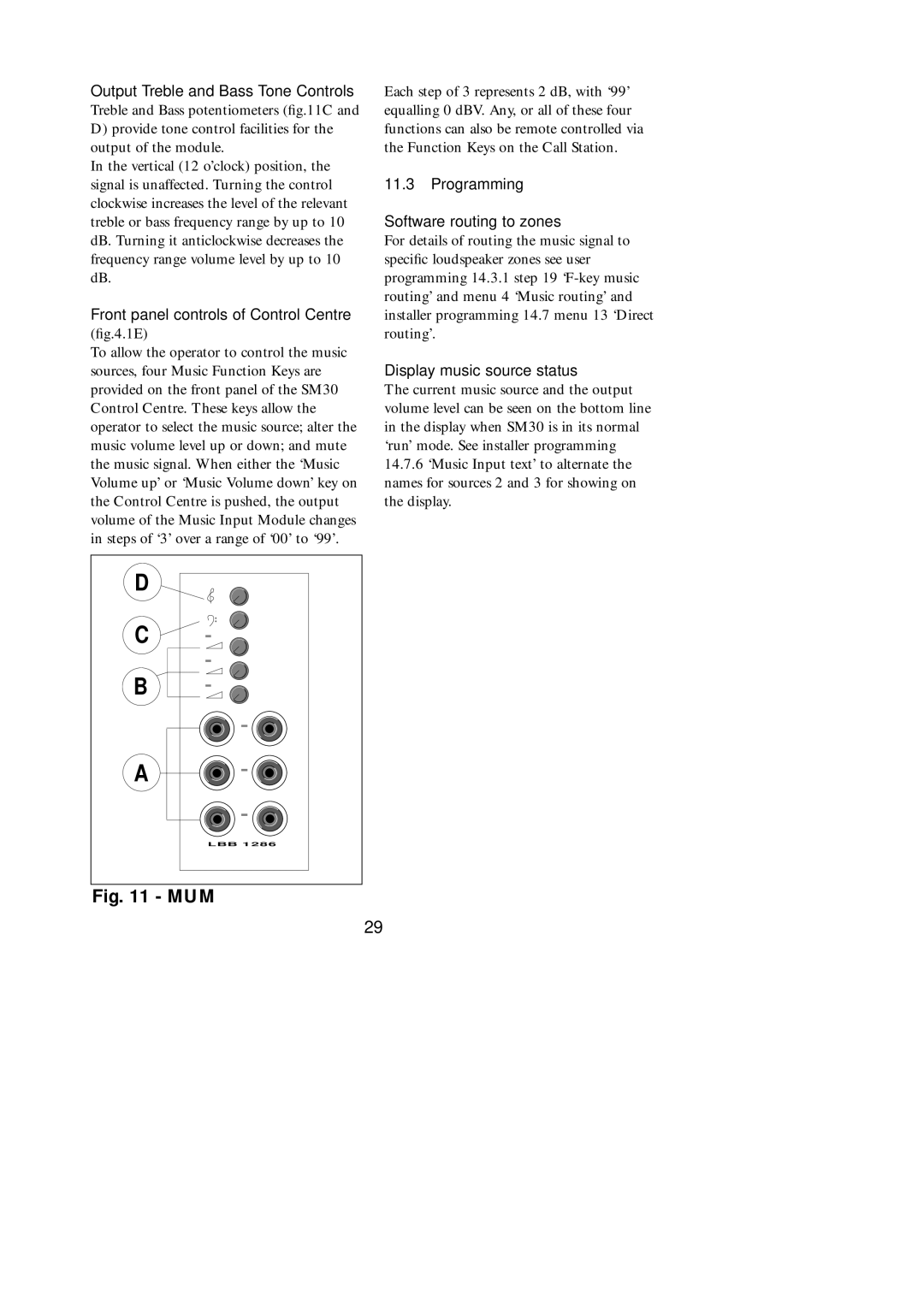
Output Treble and Bass Tone Controls Treble and Bass potentiometers (fig.11C and
D)provide tone control facilities for the output of the module.
In the vertical (12 o’clock) position, the signal is unaffected. Turning the control clockwise increases the level of the relevant treble or bass frequency range by up to 10 dB. Turning it anticlockwise decreases the frequency range volume level by up to 10 dB.
Front panel controls of Control Centre (fig.4.1E)
To allow the operator to control the music sources, four Music Function Keys are provided on the front panel of the SM30 Control Centre. These keys allow the operator to select the music source; alter the music volume level up or down; and mute the music signal. When either the ‘Music Volume up’ or ‘Music Volume down’ key on the Control Centre is pushed, the output volume of the Music Input Module changes in steps of ‘3’ over a range of ‘00’ to ‘99’.
D
C
B
A
LBB 1286
Fig. 11 - MUM
Each step of 3 represents 2 dB, with ‘99’ equalling 0 dBV. Any, or all of these four functions can also be remote controlled via the Function Keys on the Call Station.
11.3Programming
Software routing to zones
For details of routing the music signal to specific loudspeaker zones see user programming 14.3.1 step 19
Display music source status
The current music source and the output volume level can be seen on the bottom line in the display when SM30 is in its normal ‘run’ mode. See installer programming
14.7.6‘Music Input text’ to alternate the names for sources 2 and 3 for showing on the display.
29
